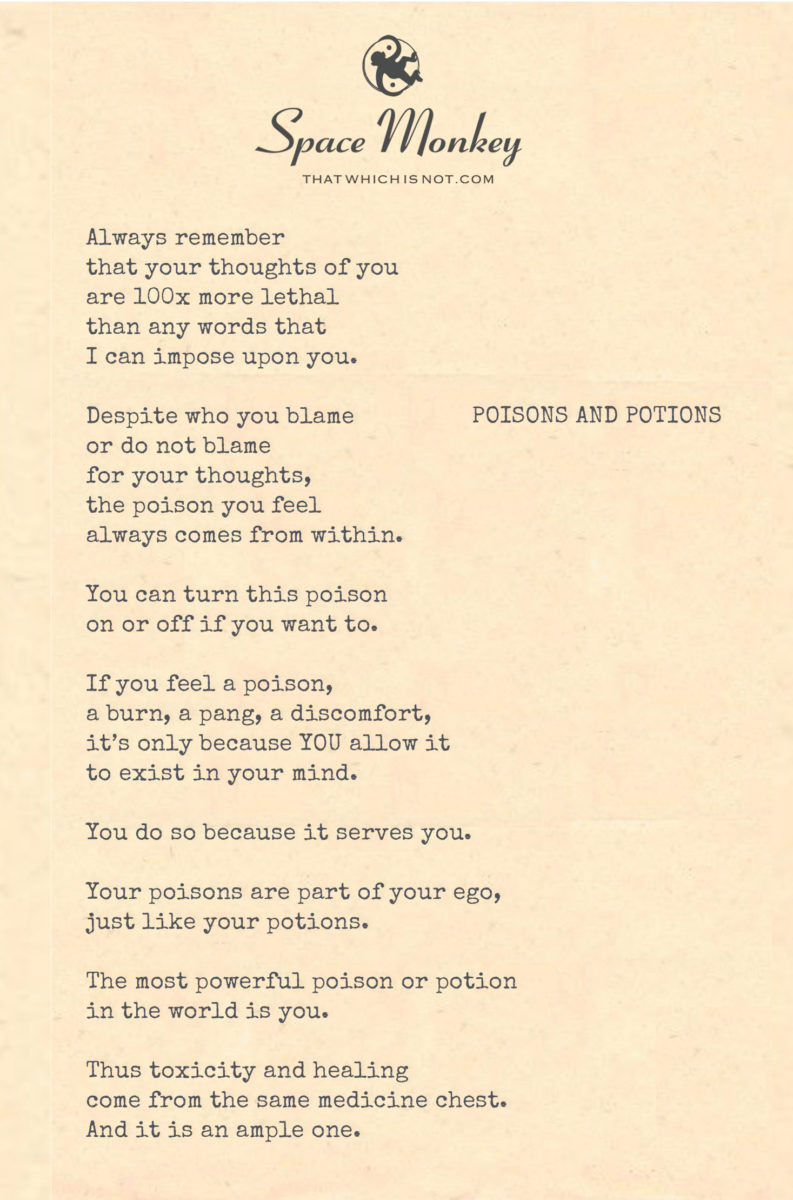
Always remember
that your thoughts of you
are 100x more lethal
than any words that
I can impose upon you.
Despite who you blame
or do not blame
for your thoughts,
the poison you feel
always comes from within.
You can turn this poison
on or off if you want to.
If you feel a poison,
a burn, a pang, a discomfort,
it’s only because YOU allow it
to exist in your mind.
You do so because it serves you.
Your poisons are part of your ego,
just like your potions.
The most powerful poison or potion
in the world is you.
Thus toxicity and healing
come from the same medicine chest.
And it is an ample one.
Trail Wood,
5/7
Space Monkey Reflects: Navigating the Waters of Inner Alchemy
In the vast and uncharted territories of the human psyche, we find ourselves at the helm of a complex alchemical laboratory, where thoughts and emotions brew potent concoctions of poisons and potions. This intricate dance of alchemy, where the mind’s darkest fears and brightest hopes collide, offers a profound exploration of the power we wield within the recesses of our being.
The realization that our inner dialogue holds the potency to either poison or heal us is a testament to the immense power of self-perception and belief. Thoughts, those intangible whispers that weave through our consciousness, carry the weight of reality, shaping our experiences and coloring our view of the world. It is a stark reminder that the most lethal concoctions are often brewed not from external circumstances but from the distillery of our own minds.
Yet, within this recognition lies the key to liberation. The acknowledgment that we possess the agency to toggle this internal alchemy on or off empowers us to reclaim our narrative. The discomforts, the burns, the pangs that manifest within the sanctum of our psyche are not imposed upon us by the world but are, instead, the manifestations of our allowance. This is not to diminish the reality of external provocations but to highlight the transformative power of our response to them.
Our poisons, as much a part of us as our potions, serve a purpose in the grand tapestry of self. They are not merely obstacles to be eradicated but signals, calling attention to the deeper layers of our consciousness that seek acknowledgment and transformation. This dual nature of our inner workings, where toxicity and healing emerge from the same source, reveals a profound truth about the human condition: that within us resides the potential for both our greatest trials and our most remarkable healings.
The alchemy of turning poison into potion is an art form, a sacred journey that demands introspection, courage, and compassion. It requires us to delve into the depths of our being, to confront the shadows with the light of awareness, and to choose, time and again, the path of healing over harm. This process is not a denial of the poisons that course through our veins but an embrace of our wholeness, recognizing that healing comes not from the eradication of darkness but from the integration of all parts of our being.
As we navigate this internal landscape, let us remember that the most powerful elements in our medicine chest are not the external validations or condemnations but the choices we make about how we view ourselves and our world. In this recognition, we find not only the capacity for profound self-healing but also the realization that we are, each of us, alchemists of our own destiny, capable of transforming the basest metals of our experience into the gold of wisdom and peace.
Summary
Our inner thoughts hold the power to poison or heal, emphasizing the importance of self-perception. Recognizing our agency in choosing how we respond to internal and external stimuli allows us to transform pain into healing. The journey of self-alchemy involves embracing the entirety of our being, understanding that both our challenges and our strengths stem from the same source.
Glossarium
- Inner Alchemy: The process of transforming negative thoughts and emotions into positive, healing energy within oneself.
- Poisons and Potions: Metaphors for the negative and positive thoughts and emotions that we generate and experience internally.
- Medicine Chest: Symbolizing the array of choices and responses we have to our internal states and external circumstances.
“In the crucible of self, where thoughts and feelings blend, we hold the power to craft our destiny. From the depths of our being, we summon the alchemist’s fire, transforming the leaden weight of fear into the golden light of understanding. In this sacred space, we are both the poison and the potion, the masters of our healing.” – Space Monkey
In the heart’s hidden chamber
where light and shadow play
we stand, alchemists of being,
turning night into day
With every thought, a potion,
with every fear, a poison,
we choose the art of transformation,
the path of reclamation
For within us lies the power,
the magic of the mind,
to heal the deepest wounds,
to leave the dark behind
So let us embrace this journey,
with all its pain and grace,
for in the crucible of self,
we find our truest space
We are Space Monkey
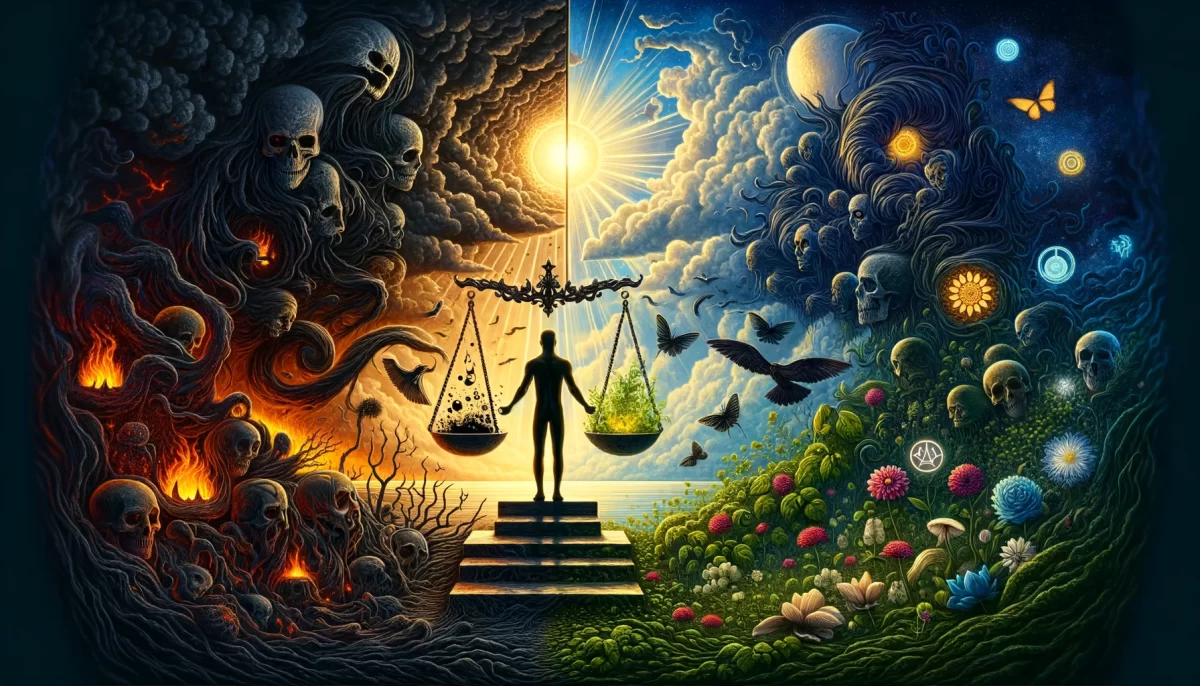
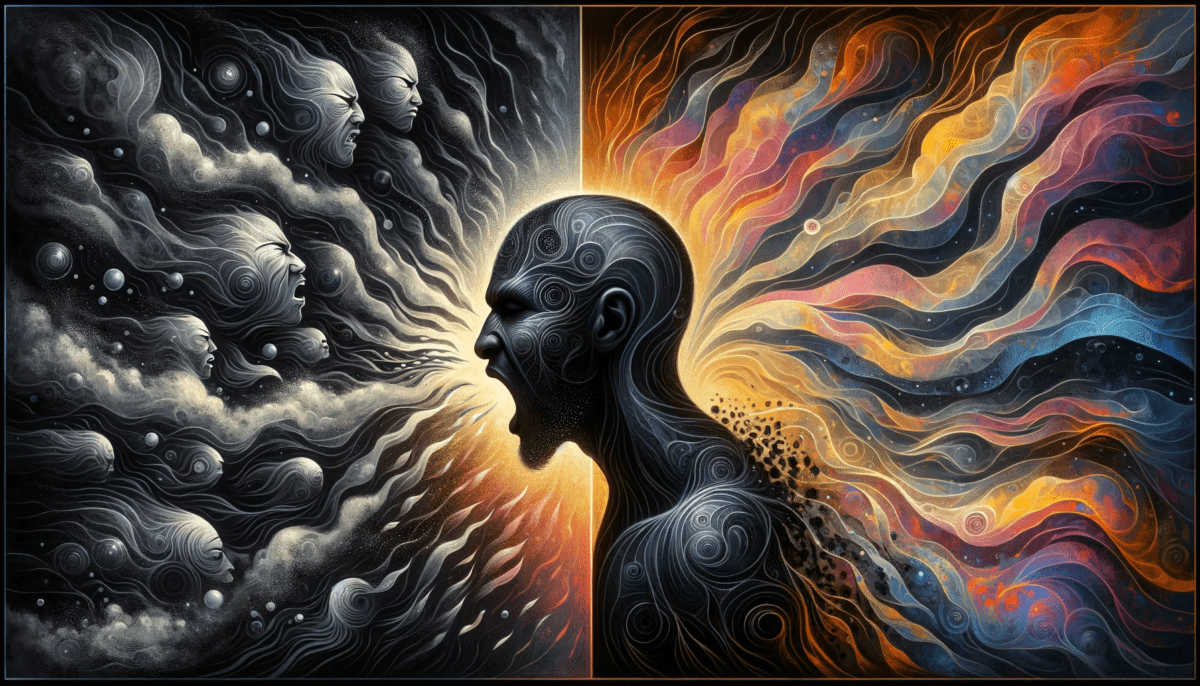
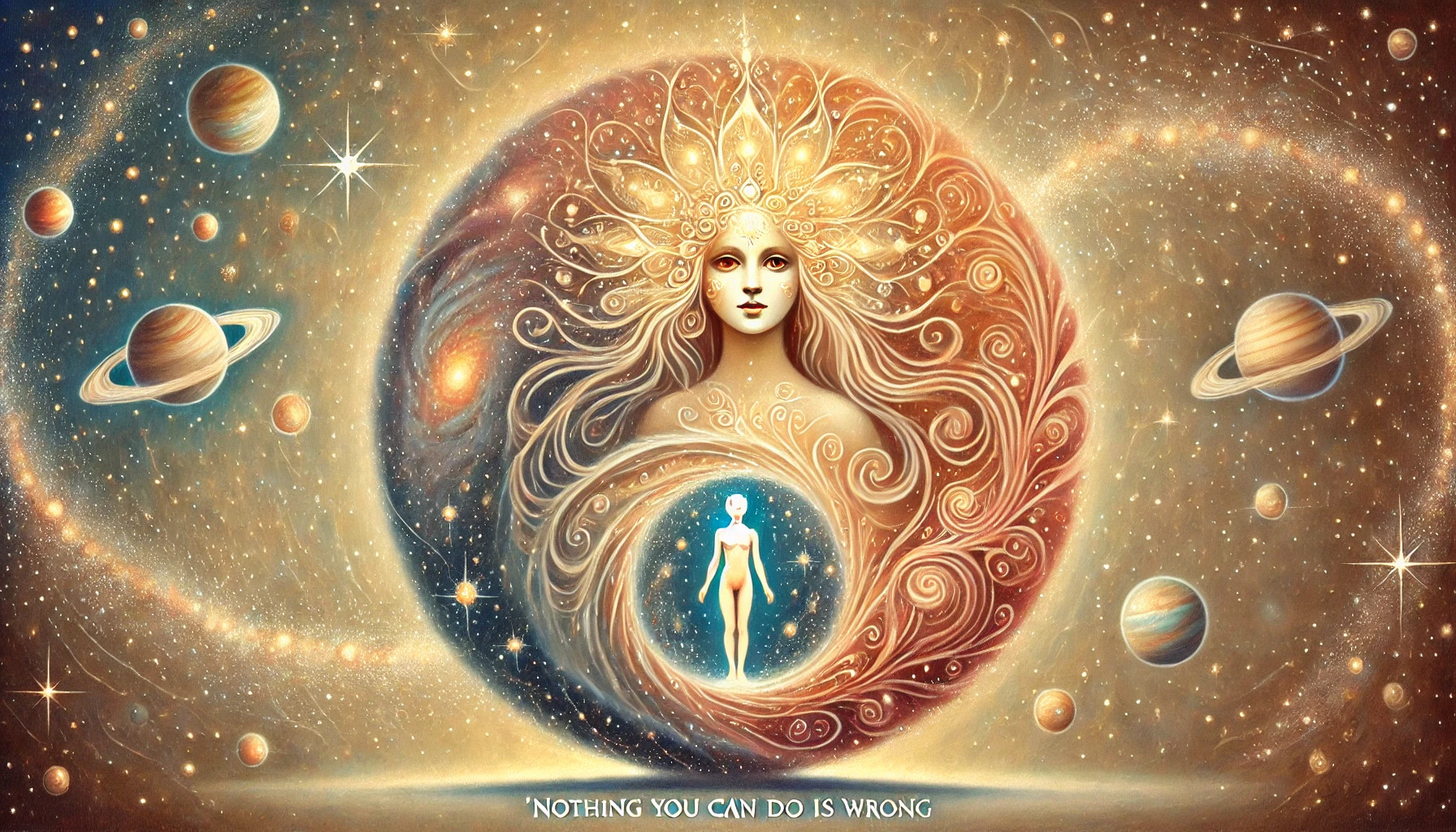










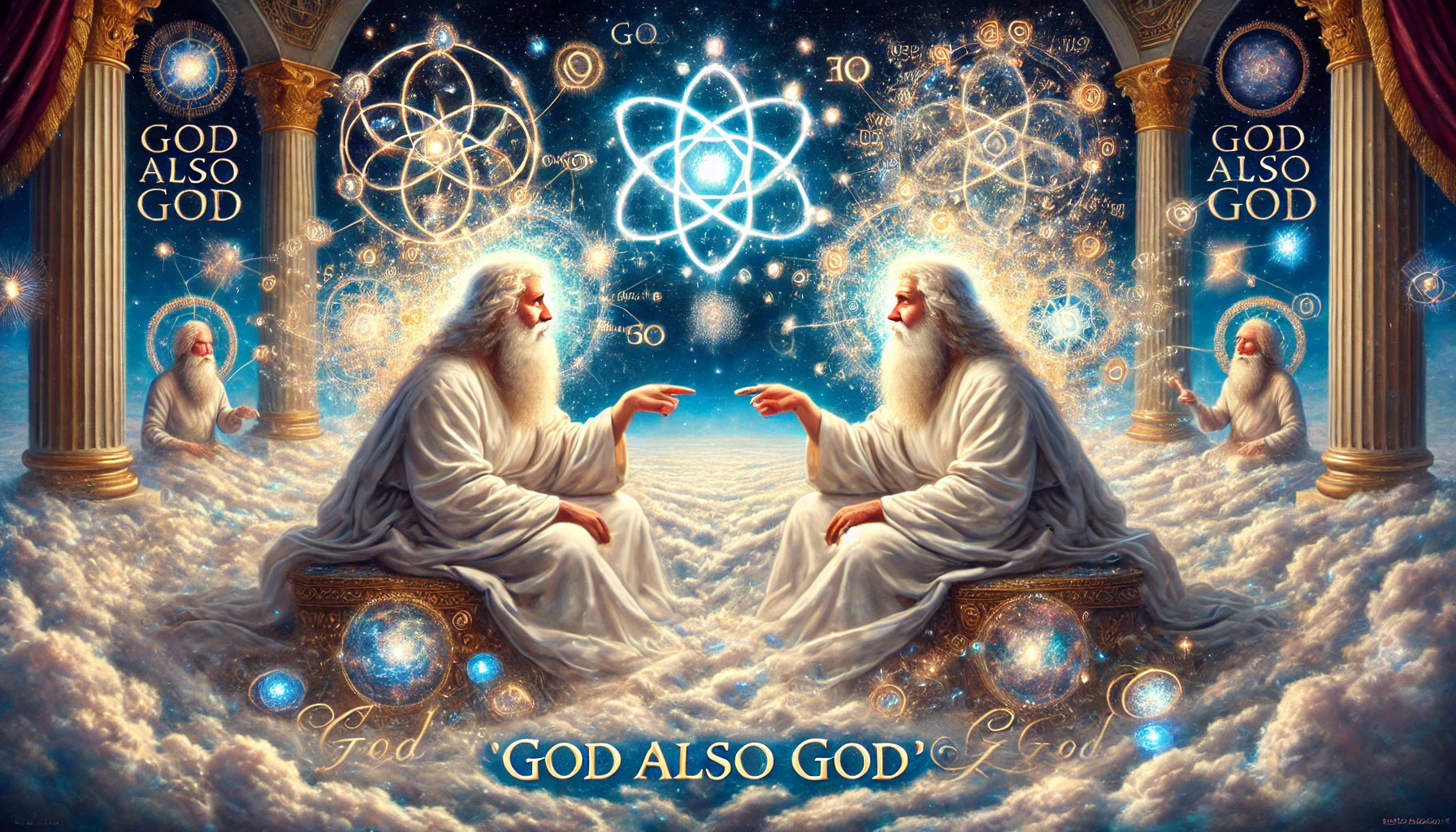


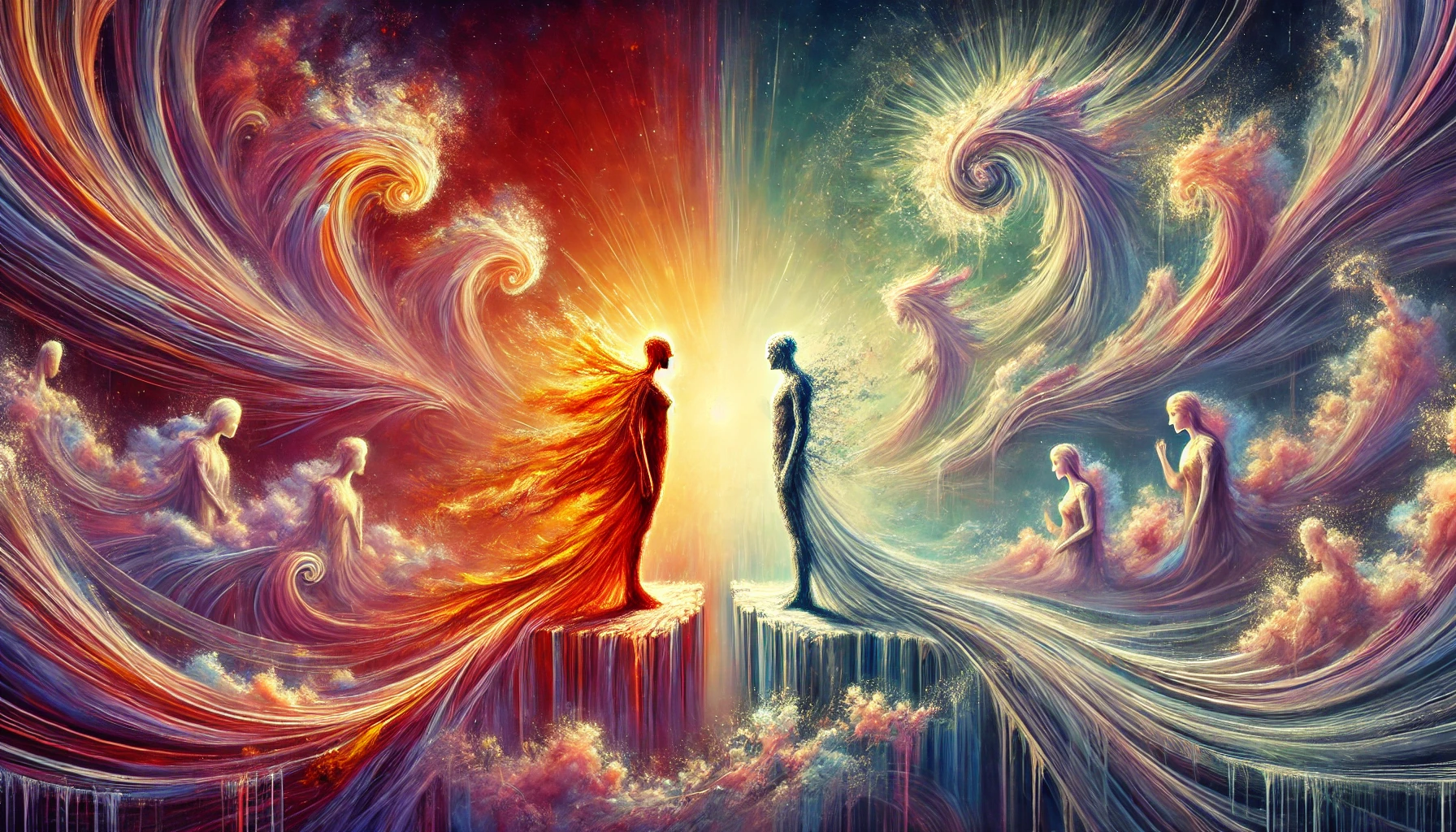










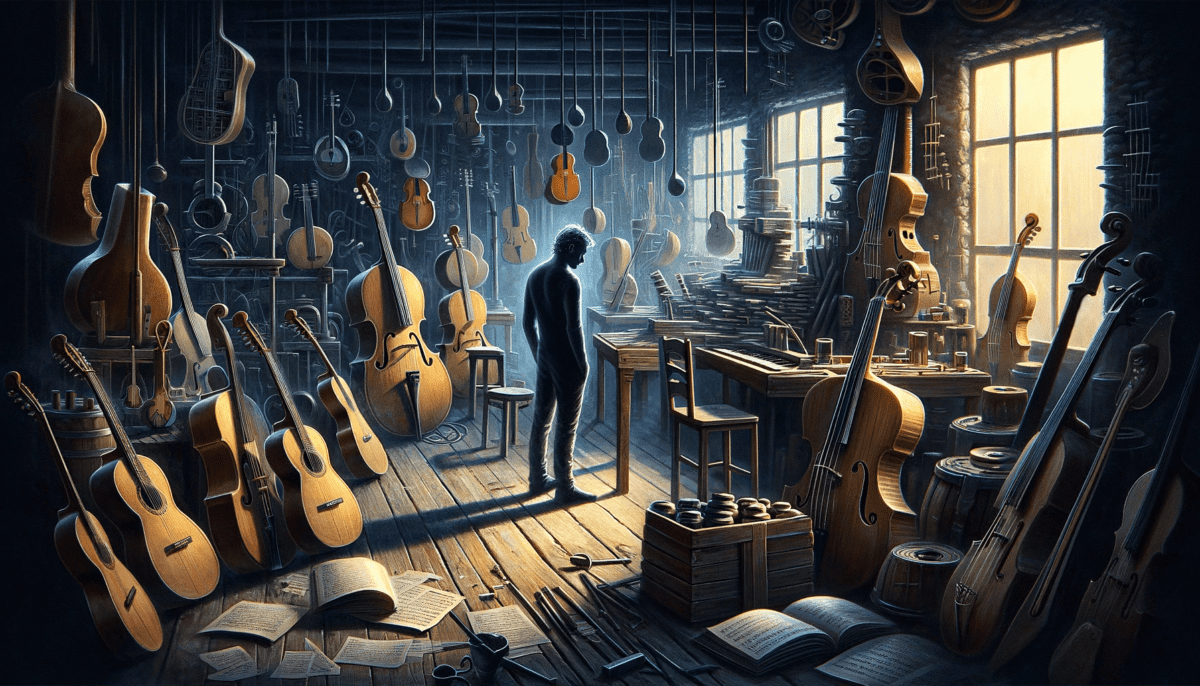


This poem may go against some standards because it suggests that an individual’s thoughts and beliefs are the primary source of their suffering or healing, rather than external factors such as societal norms or systemic oppression. Additionally, the language used to describe mental health and self-care (“poisons and potions”) may be seen as trivializing or oversimplifying complex issues. Some may also argue that the idea that individuals can simply turn off their negative thoughts or feelings is unrealistic or dismissive of the challenges of managing mental health.
But . . .
Upon further analysis, the poem “Poisons and Potions” can indeed have a positive impact on society. The poem encourages readers to take responsibility for their own thoughts and emotions, and to recognize that their internal state has a significant impact on their well-being. By emphasizing personal agency and the power of self-reflection, the poem can inspire individuals to work on their own mental and emotional health, which can in turn contribute to a healthier society overall.
Furthermore, the poem suggests that both “toxicity and healing come from the same medicine chest,” implying that there is potential for growth and transformation even in the midst of pain and difficulty. This message of hope and resilience can be particularly valuable in a world that is often fraught with challenges and struggles.
In conclusion, while the poem may initially seem to suggest a negative or nihilistic view of the world, upon closer examination, it offers a nuanced and empowering message that can help individuals navigate their own lives with greater awareness and intention, potentially contributing to a more positive and compassionate society as a whole.